El Greco Museum restoration and extension by Pardo + Tapia Arquitectos
Renaissance artist El Greco lived and worked in the Spanish city of Toledo and Pardo + Tapia Arquitectos has refurbished and added a glazed entrance pavilion to the small museum that houses some of his most important paintings (+ slideshow).
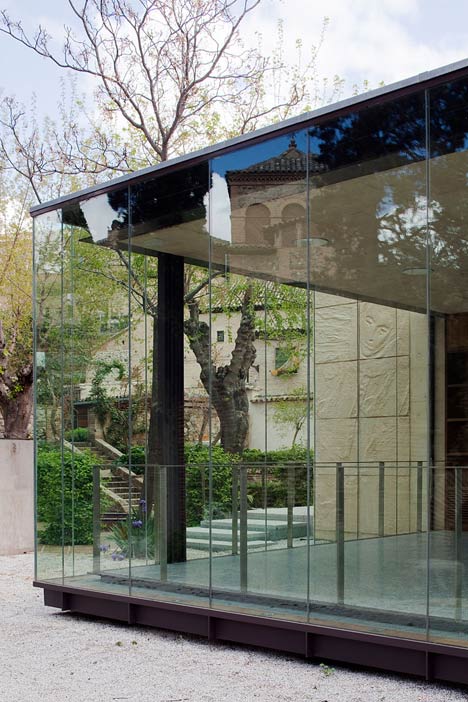
Located in the city's Jewish quarter, the El Greco Museum comprises two buildings; a 16th century house designed as a recreation of the artist's home and a 20th century extension.
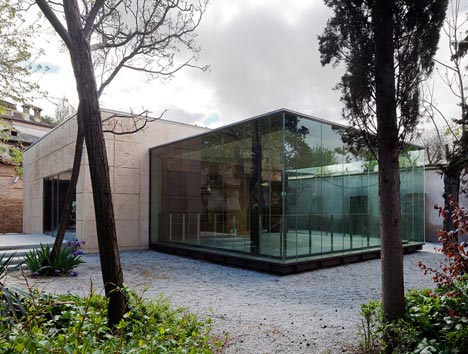
Architect Fernando Pardo Calvo told Dezeen how his extension was conceived as a glazed volume to respect the existing buildings. "Its presence in the garden is diminished by its transparency," he explained.
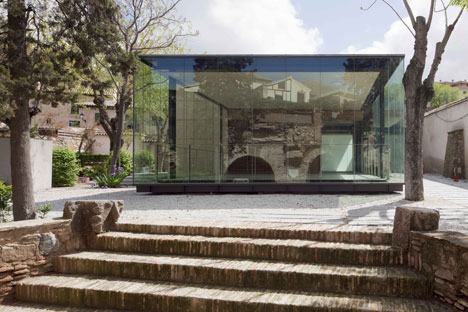
Behind the glazed entrance, a second new space is clad in concrete panels, which are engraved with the outlines of one of the artist's paintings.
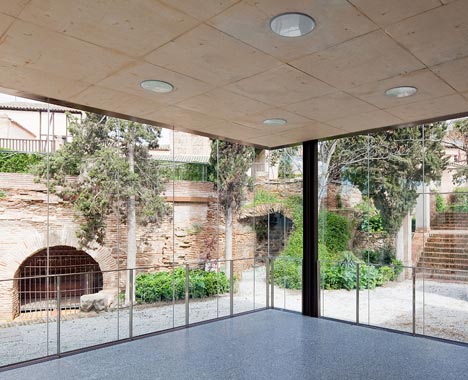
"El Greco is present at all times," said Pardo Calvo. "Not only in the collections but also in the architecture. In the historic building because this place was near his workshop, and in the new building because his painting "Vista y plano de Toledo" is engraved in the concrete."
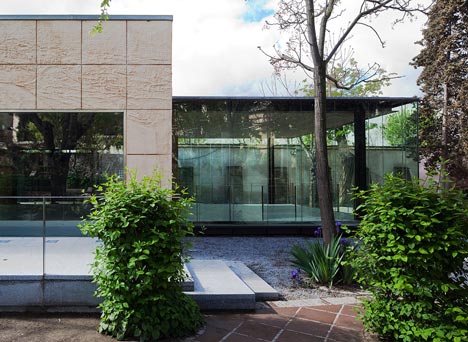
As well as adding a new entrance, the architects have restored the spaces of the gallery, which house artworks by El Greco and a selection of other 17th century painters.
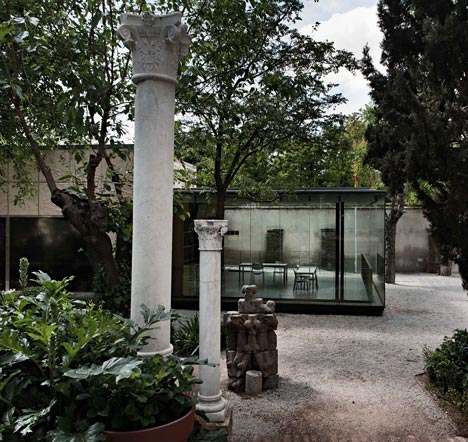
The architects used a traditional material palette of ceramics, plaster, stucco and wood for these areas of the building.
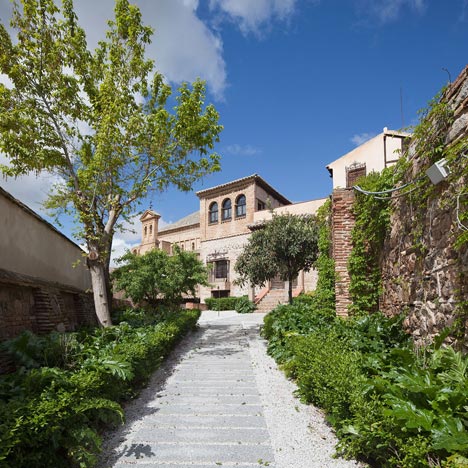
See more stories about renovations, including a replacement corner for a ruined Renaissance palace.
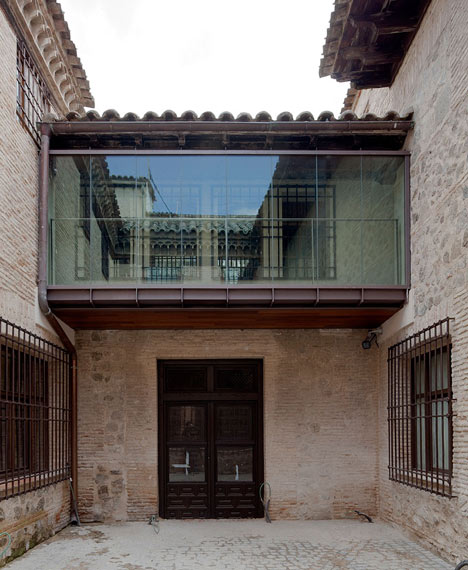
Photography is by Miguel de Guzman.
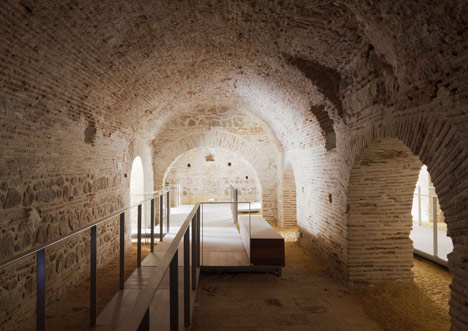
Here's some information from the architects:
El Greco Museum
Toledo, Spain 2003-2011
Adequacy and realignment works of the El Greco Museum, at buildings and gardens surrounded by Samuel Levy St., Paseo del Tránsito St., Alamillos del Tránsito St. and San Juán de Dios St. at Toledo city. Toledo
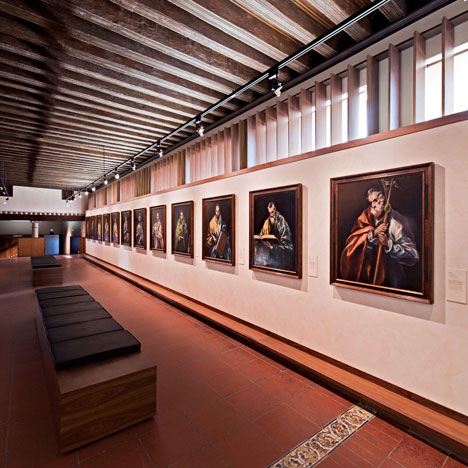
Short historic notice
On the remains base of a XVI century house and a renaissance palace at the Jewry of Toledo, it was built on the beginning of XX century the edification conjunct that today compounds the El Greco Museum House.
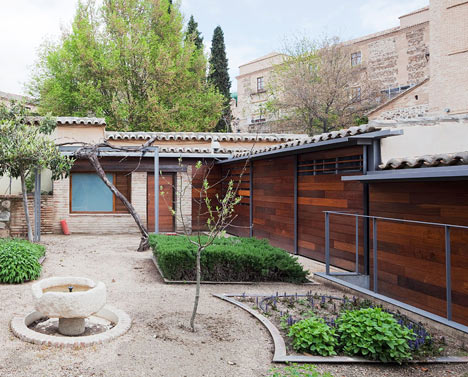
The Marquis de la Vega-Inclán was who recovered those areas, as well, the gardens during the years 1907 – 1910, the aim was to develop the idea of organize a center dedicated to the art work of El Greco performed at the Jewry of Toledo, in the real El Greco's house environment , nearby of Villena's Palace.
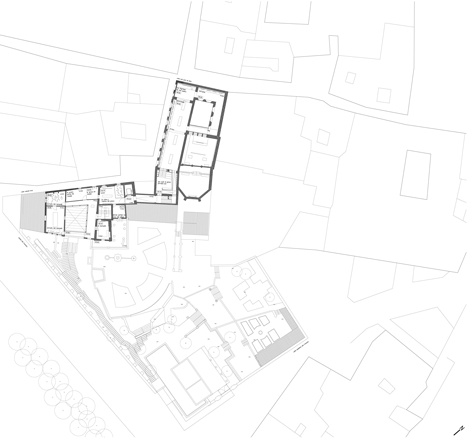
Ground floor plan - click above for larger image
When the works were finished the Spanish State donation was formalized, and on April, 27th, 1910, the Patronage was founded, this institution took over of the custody and govern of the Greco's Museum House.
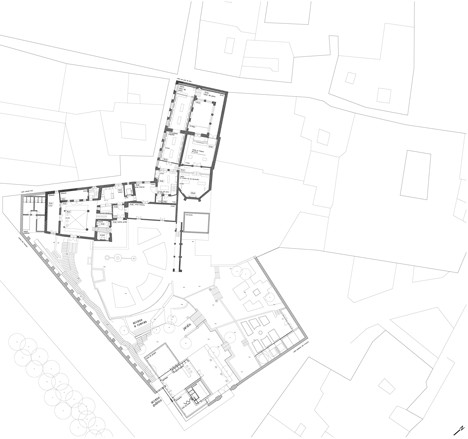
First floor plan - click above for larger image
That age significant personages were involved in the Patronage. (Beruete, Sorolla, Mélida, Cossío, etc.). The House was opened and inaugurated on June, 12nd, of 1911. A section was restored as the Marquis Vega-Incan’s house, staying this private situation up to 1942.
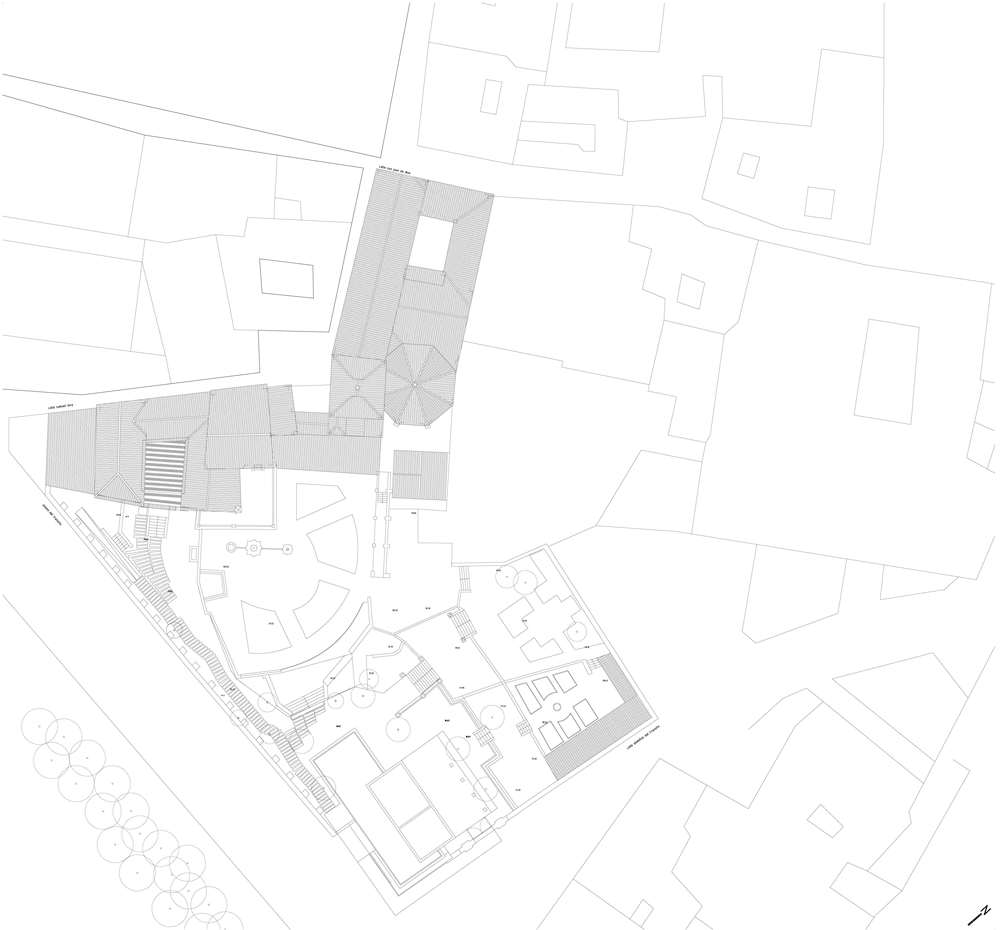
Roof plan - click above for larger image
The reasons for restore this conjunct were to shelter in it, the El Greco's work collection that was spread out all over the city of Toledo (San Jose´s Church, Santiago's Hospital, etc…) and was on risk of disappearing and lost. This collection was developed with a further room’s extension at 1921, for the exposure of the painting art work of the XVII century Spanish schools. This should be the starting point of a Spanish Art Center.

Section one - click above for larger image
The 1921 restoration was followed by any other two, at 1950 and 1960 and other one at 1990. The current project begins on the base site of the last one (1990).

Section two - click above for larger image
Project
The target of the project has been to take advantage of space and cultural potential that the edifications, gardens and the El Greco personality as well, going through a realignment labor.

Sections three and four - click above for larger image
Meanwhile a pavilion construction gives shelter to the museum funds and a new travel path is restructured across the conjunct of buildings (rehabilitated and adapted to the current normative standards) and also allows the visit to the gardens and caves.
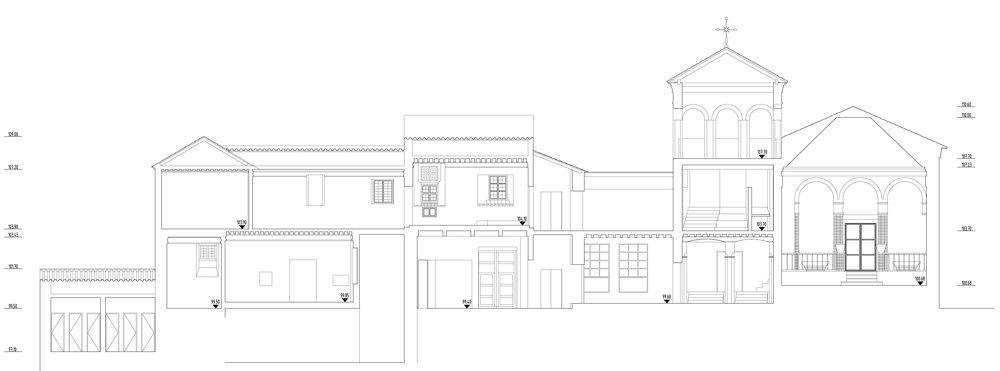
Section five - click above for larger image
Museografy
The museography project, although formally distinguished, takes part of the propound common objective, going through the existing building path, showing the recuperation and construction of the El Greco figure by the Marquis de la Vega-Inclán, the work and the different aspects of his life and travels, and his painting later influences, with the aim of explaining and giving value itself trough a reference configuration frame.
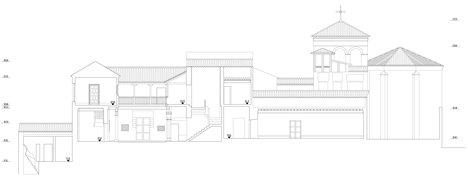
Section six - click above for larger image